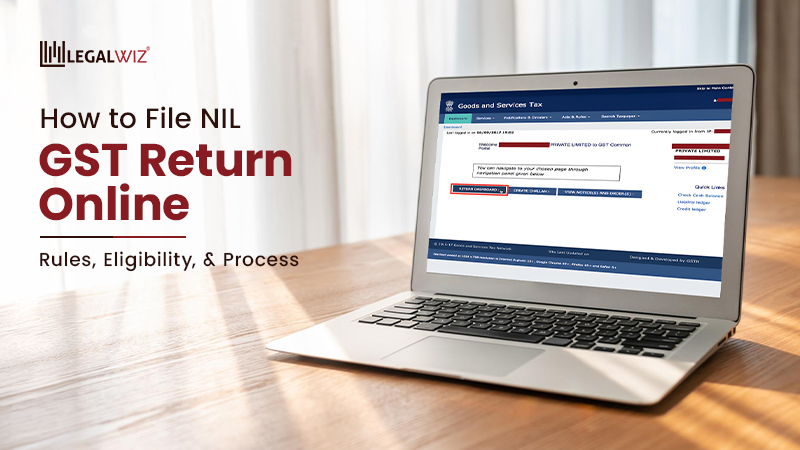Startup India Scheme: Key Benefits and Eligibility
The Startup India Scheme is a groundbreaking initiative launched by the Government of India on January 16, 2016. Its primary objective is to foster innovation and entrepreneurship across the nation, creating a conducive environment for startups to thrive. This initiative not only aims to boost economic growth. It also seeks to generate employment opportunities for millions of young Indians. In this article, we will delve into the various Startup India benefits, the eligibility criteria for availing these benefits of startup india scheme, and how aspiring entrepreneurs can apply for a startup India recognition.
Overview of the Startup India Scheme
The Startup India Scheme is spearheaded by the Department for Promotion of Industry and Internal Trade (DPIIT). It focuses on three fundamental pillars:
- Simplification and Handholding: This involves reducing bureaucratic hurdles that often impede startup growth. Hence, making it easier for new businesses to establish themselves.
- Funding and Incentives: The government provides financial support through various channels, including a dedicated fund aimed at investing in startups.
- Incubation and Industry-Academia Partnerships: The scheme encourages collaboration between startups as well as educational institutions, fostering innovation through research and development.
By focusing on these pillars, the Startup India initiative aims to transform India into a global startup hub. One that promotes innovation, job creation, and also economic development.
Key Benefits of the Startup India Scheme
The Startup India benefits are extensive as well as designed to provide startups with essential resources to grow and succeed. Here are some of the most significant advantages:
1. Easy Registration Process
Firstly, startups can register through the Startup India portal with minimal documentation. The process is designed to be quick and hassle-free, allowing entrepreneurs to focus on their business rather than bureaucratic processes. This ease of registration is one of the standout Startup India benefits, as it significantly reduces time and effort.
2. Tax Exemptions
Also, one of the most attractive Startup India benefits is its provision for tax exemptions. Startups recognized under this scheme can avail of a 100% tax exemption on profits for three consecutive years out of their first ten years of incorporation. This benefit allows startups to reinvest their earnings into growth initiatives, making it easier to scale operations without being burdened by tax liabilities.
3. Funding Opportunities
Access to funding is crucial for any startup’s success. The Startup India initiative facilitates access to funding through a Fund of Funds (FoF) program that allocates ₹10,000 crores to support startups via registered Alternative Investment Funds (AIFs). This financial backing can help startups secure investments that are essential for scaling their operations.
4. Patent Support
Intellectual property protection is vital for startups aiming to innovate. Under the Startup India scheme, startups can receive an 80% rebate on patent costs, significantly reducing the financial burden associated with protecting intellectual property. Additionally, the government covers facilitation fees for patent applications, encouraging startups to secure their innovations effectively.
5. Self-Certification for Compliance
Startups can self-certify compliance with certain labor laws and environmental regulations, reducing the need for inspections for up to five years. This self-certification process simplifies compliance requirements, allowing entrepreneurs to focus more on their core business activities rather than regulatory hurdles.
6. Credit Guarantee Fund
To enhance creditworthiness, the government has established a Credit Guarantee Fund that provides guarantees for loans taken by startups from banks. This initiative helps mitigate risks associated with lending, making it easier for startups to access capital without stringent collateral requirements.
7. Faster Exit Mechanism
In case a startup needs to wind up operations, the Startup India scheme offers a simplified bankruptcy process that allows businesses to close down within 90 days if necessary. This quick exit mechanism provides entrepreneurs with peace of mind, knowing they have a clear path if things don’t go as planned.
8. Support from Incubators
Startups can partner with government-recognized incubators that provide mentorship, resources, as well as networking opportunities. These incubators play a crucial role in nurturing startups by offering guidance from experienced professionals and also access to valuable industry contacts.
Eligibility Criteria for Startup India Scheme
To take advantage of the Startup India benefits, applicants must fall under the startup india scheme eligibility criteria:
1. Type of Entity
The startup must be registered as a Private Limited Company, Limited Liability Partnership (LLP), or a Registered Partnership Firm. This requirement ensures that only formalized entities can benefit from the scheme.
2. Age of the Startup
The entity should not be older than ten years from its date of incorporation. This criterion ensures that the scheme supports young ventures with high growth potential rather than established businesses looking for additional benefits.
3. Annual Turnover Limit
The startup’s annual turnover must not exceed ₹100 crores in any financial year since its inception. This limit helps identify genuinely nascent businesses that require support during their early stages.
4. Innovation Focus
The startup should focus on innovation or improvement in products or services. It should aim at developing new technologies or processes that contribute significantly to its field. This focus on innovation is critical in ensuring that only those startups that are genuinely seeking to disrupt markets receive recognition under this scheme.
5. No Reconstruction Clause
Entities formed by splitting up or reconstructing an existing business are not eligible for recognition under this scheme. The startup must be an original venture aiming at creating something new in the marketplace.
How to Apply for Startup India Recognition
Startup India Registration or recognition involves several straightforward steps:
- Create an Account on the Startup India Portal: Visit the official Startup India website and also create an account using your email address or mobile number.
- Fill Out the Application Form: Provide necessary details about your startup, including its nature, objectives, business model, as well las any innovative aspects that set it apart from competitors.
- Upload Required Documents: Attach relevant documents such as your certificate of incorporation, PAN card, details of your team members, pitch deck if available, and any other supporting documents specified in the application guidelines.
- Submit Your Application: After filling out all necessary information and also uploading documents, submit your application for review by DPIIT.
- Receive Recognition Certificate: Upon successful verification of your application, you will receive a recognition certificate from DPIIT within a few days via email or through your account on the portal.
This streamlined process ensures that startups can quickly gain recognition as well as access various benefits under the scheme.
Conclusion
The Startup India Scheme is an essential initiative aimed at nurturing entrepreneurship in India. The numerous Startup India benefits, such as tax exemptions, funding opportunities, simplified registration processes, and support for innovation. By understanding these advantages and meeting eligibility criteria, aspiring entrepreneurs can significantly enhance their chances of success in today’s competitive landscape.
For entrepreneurs looking to leverage these advantages, exploring the Startup India benefits could be a game-changer for their business journey. With its focus on fostering innovation and creating job opportunities, this scheme plays a pivotal role in transforming India’s economic landscape into one that champions entrepreneurship as well as growth.

Monjima Ghosh
Monjima is a lawyer and a professional content writer at LegalWiz.in. She has a keen interest in Legal technology & Legal design, and believes that content makes the world go round.







